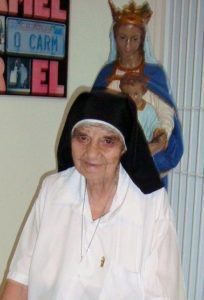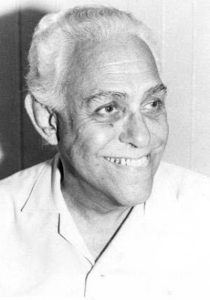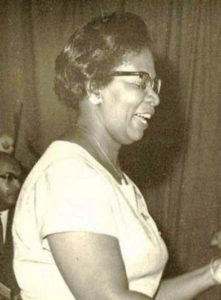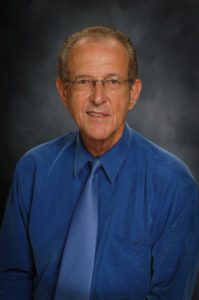
In the grip of the desire for independence from colonial rule and a fervour for a national identity beginning perhaps from the 1940s, a proliferation of patriotic poetry flowed from the pens of a group of men and women, over the years leading up to and just after Guyana’s eventual independence, that was made into music.
Few young people are aware of a genre in the country’s musical heritage known as national or patriotic songs, excluding the national anthem; and even fewer can be said to be familiar with the songs and historical figures behind a once vibrant tradition celebrating national identity and patriotic passion.
Walter MacArthur Lawrence
Born January 1896 in Georgetown, Walter MacArthur Lawrence is arguably one of the first poets to express a patriotic enthusiasm with his poem “My Guyana, Eldorado”, which would later be put to music. Many of his poems have entered influential book collections around the world. MacArthur Lawrence died in 1942.
Cleveland Hamilton

Cleveland Hamilton was a busy legal practitioner who would also excel in his other love: poetry. Late 1969, a competition to select a national hymn to celebrate Guyana’s Republic status was announced that saw the selection of a poem called “Song of the Republic” to be put to music.
Submitted by a Thomas Theophilus Halley, it was the pen name for Hamilton who was concerned about political issues arising since he may have ruffled a few feathers in the then administration’s side for his outspokenness in a matter. It would take a long while after he was adjudged winner before he stepped forward to claim his place in Guyana’s history. He died Feb. 22, 1991.
Valerie Rodway
Valerie Rodway is perhaps best known for her musical composition pieces set to Vere T Daly’s, “Hymn for Guyana’s Children”; “Arise, Guyana” by J W Chinapen; Walter MacArthur Lawrence’s “O Beautiful Guyana” and “Guyana the Free”, a piece written and composed by herself and second husband James Rodway.

Born Valerie Fraser in New Amsterdam in 1919, she showed an early interest and talent in music, which was nurtured by leading music teachers of the day, and she went on to earn the Licentiate of the Royal College of Music (LRCM). She became a music teacher and one of Guyana’s most famous composers.
Other compositions include “Water Music” (words by A J Seymour); “Kanaima”; “Kaieteur” (words by J A Lawrence); “The Weeding Gang” (words by CEJ Ramcharitar-Lalla) and “There Runs a Dream”. She also composed music for Martin Carter’s “Let Freedom Wake Him”.
Valerie Rodway died in 1970.
Sr Rose Magdalene
Sister Rose (Magdalene) D’Ornellas was a Sister of the Community of Carmelite Sisters, former Folk Research Officer in the Department of Culture, and social activist in the cultural community of Guyana.
She was born Elaine Mary D’Ornellas on Oct. 30, 1923 and joined the Carmelites in Trinidad on Jan. 10, 1946. She was assigned to the St Bernadette’s Hostel for Girls at Lamaha Street, Georgetown Guyana in 1950.
It was while she later taught both academics and music at the St Mary’s Junior School in New Amsterdam that her talent in teaching and music stood out. She founded The Marigold Choir, a children’s choir, in September 1990, which rose to gain international recognition.
Sr. Rose Magdalene’s compositions that reflect Guyanese life and nationality include, “The Berbice Ferry”, “The Golden Arrowhead”, “Children of Guyana”, “The Mango Sellers”, “In an Aeroplane”, “My Kitchen Garden” and “Out of School”.
Initially sent to be in Guyana for six months, she ended up spending almost a lifetime – some 54 years – instead. Sr Rose Magdalene died in Trinidad, where she had returned after retirement, on Apr 25, 2011.
Dave Martins

Guyana-born Dave Martins of the Tradewinds fame is often synonymous with what he calls “win’ down music”, but after pleas from the late Pat Cameron to compose something on a boundary dispute in the 70s, he came up with one of the most famous patriotic songs of modern times in Guyana, “Not a Blade of Grass”, and later, after being inspired by the audience at a Guyana Night performance, wrote, “Is We Own”.
There are also several other notable writers and composers of Guyana’s national songs such as M. A. Cossou who penned “My Native Land”; George Noel: “To Serve My Country” and “Treat All Guyanese Equally”; RCG Potter: “Way Down Demerara” and “A Song of Hope”; Frank Daniels who wrote the music to Cleveland Hamilton’s “Song of the Republic”; W. Hawley-Bryant: “The Song of Guyana’s Children”; Hugh Sam: “River Song”; W.R.A. Pilgrim: “Let Us Cooperate” and “Salute to Guyana”; Jodina: “Blue-Saki” and “Citizen Man”; Hilton Hemerding: “Beautiful Guyana” and Walter E Hewick: “On The Banks of The Kako River”.



